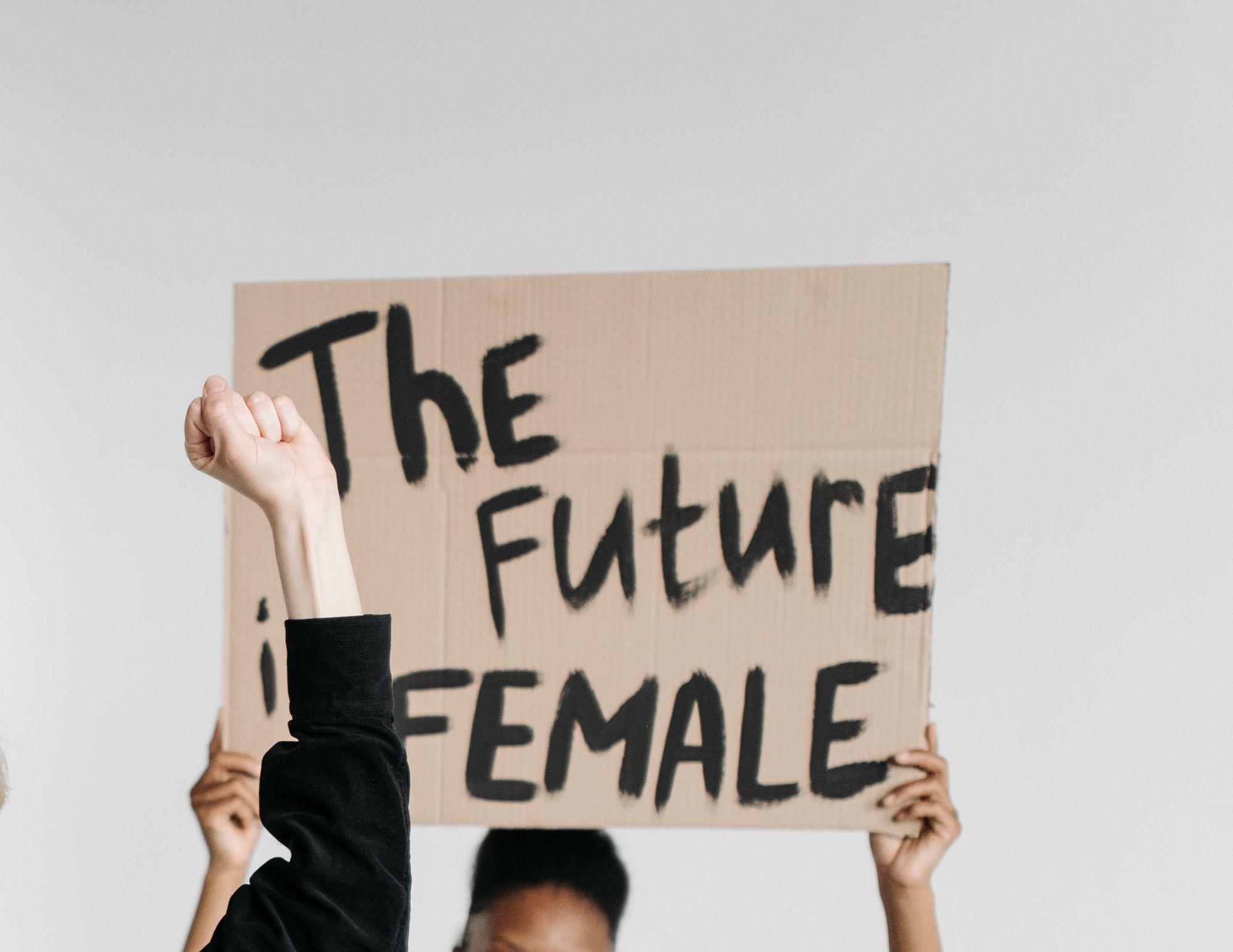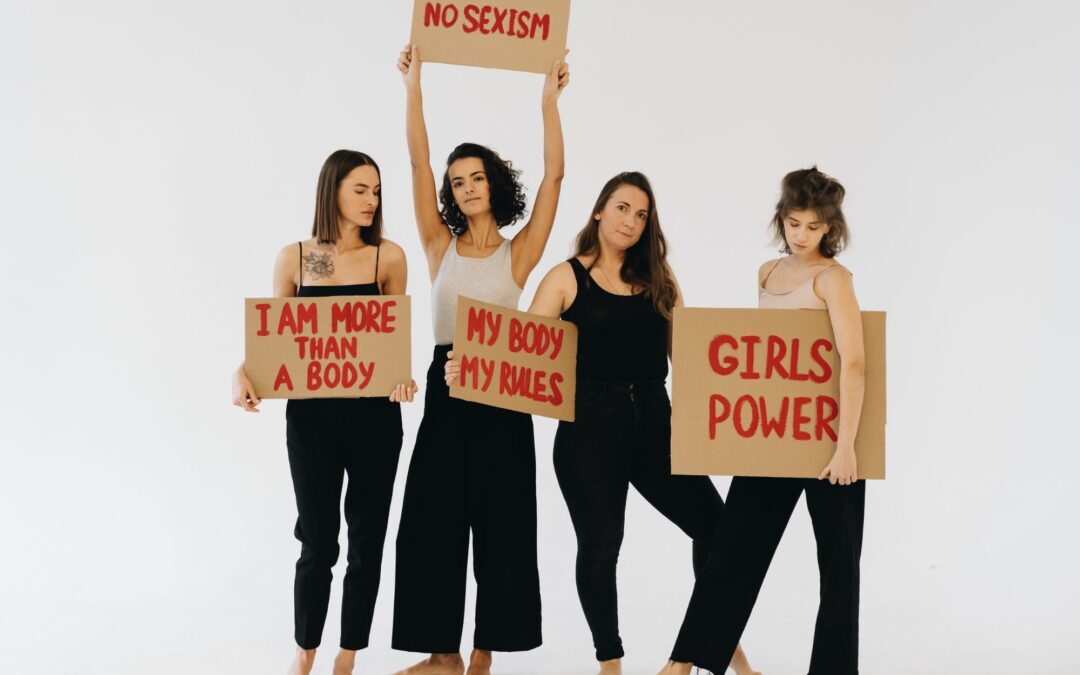On the 21st of September 2023 the concluding session of the Ukrainian Vibes workshop series took place, with the straightforward title: “Raising Voices: Ukraine’s Role in Empowering Women in Europe.” The expert this time was Valeria Voshchevska, a Ukrainian human rights activist, co- of the Women’s March in Ukraine, and digital strategist, residing in London. In the light of the ongoing war in Ukraine, this workshop’s topic was one that we could not ignore: wars have a way of reshaping women’s roles in society, as we’ve seen historically all over the world. Take World War II, for instance, when women in the US and Western Europe joined the workforce but later faced setbacks in their rights. Since the war started in Ukraine one and a half years ago, women confronted unique challenges, often having to leave the country as their male counterparts were drafted into the military. This workshop sought to delve into the state of women’s rights in Ukraine before and during the war, pinpoint areas that still need improvement, and contemplate the future for women in Ukraine and across Europe.
Valeria Voshchevska began her presentation by addressing the fundamental question of what feminism actually is, for which she quoted Chimamanda Ngozi Adichie: “One has to understand that feminism is about the social, economic and political equality of the sexes. Feminism demands an annihilation of the gender hierarchy and not women’s rule over men as is often misinterpreted.” She emphasised that feminism aims to achieve social, economic, and political equality between the sexes, debunking the misconception of women seeking dominance over men. In the context of the war in Ukraine, it became evident that this struggle transcends military battles. According to Voshchevska, Ukraine is also combating the outdated and discriminatory beliefs propagated by Russia during that very conflict.
Furthermore, Valeria highlighted a significant statistic: In the 2021 Gender Inequality Index, Ukraine was ranked 103rd out of 156 countries concerning women’s political participation. However, there was a slight improvement in 2022, moving up to position 100. This underlines the ongoing efforts to promote gender equality in the country.
She quoted Cynthia Enloe, emphasising the importance of understanding the diverse experiences and ideas of women during wartime, who said: Conflicts, including the one in Ukraine, lead to increased gender-based violence, disruption of education, healthcare infrastructure damage, forced displacement, and a breakdown of social structures protecting women’s rights. However, Valeria also shed light on potential opportunities arising from wartime, such as the disruption of traditional gender roles, opportunities for women to assume leadership roles, international attention and funding for post-conflict reconstruction, and women’s participation in peace-building and conflict resolution efforts.
The Istanbul Convention and Its Significance
Another critical aspect discussed this context was the Istanbul Convention from 2011, the point of which is that each country that signs it officially declares to prevent and combat violence against women and domestic violence. Ukraine ratified this human rights treaty in 2022, a significant and to some maybe even a surprising step during a time of war. Valeria explained that this move was in line with the requirement to become a member of the EU. However, she noted that not all countries have signed the Istanbul Convention, and some actually opted out after signing it (such as Turkiye, where the convention was signed in the first place). This serves as a reminder that women’s rights should never be taken for granted.
The Uncertain Future and Hope for Progress
When it comes to the future of women’s rights in Ukraine, however, it can be said that for now it is rather uncertain. And yet, while Valeria Voshchevska acknowledged that predicting the exact outcome is challenging, especially since it is difficult to even predict when the war will end, she expressed optimism due to the increased awareness of these issues. As a summary to her presentation, she once again reiterated Chimamanda Ngozi Adichie’s wisdom: “ .” The message was clear: understanding the role of women in times of conflict is pivotal for building a just and equal society.
We thank Valeria for pointing out in such a clever way the subtle but important connections between feminism and war, and for making it clear to all of us once again that even in times of war, women’s rights do not stop in one place. This is an aspect that cannot be ignored in the war in Ukraine either, because it will not only affect women’s rights in the future, but is already doing so. Raising awareness on these topics is ultimately what will shape the future of women’s rights everywhere, which is precisely what we hoped to achieve with our workshops. Thank you to everyone who participated in this very last online meeting with us, the Ukrainian Vibes team, and once again a special thank you to our expert!


